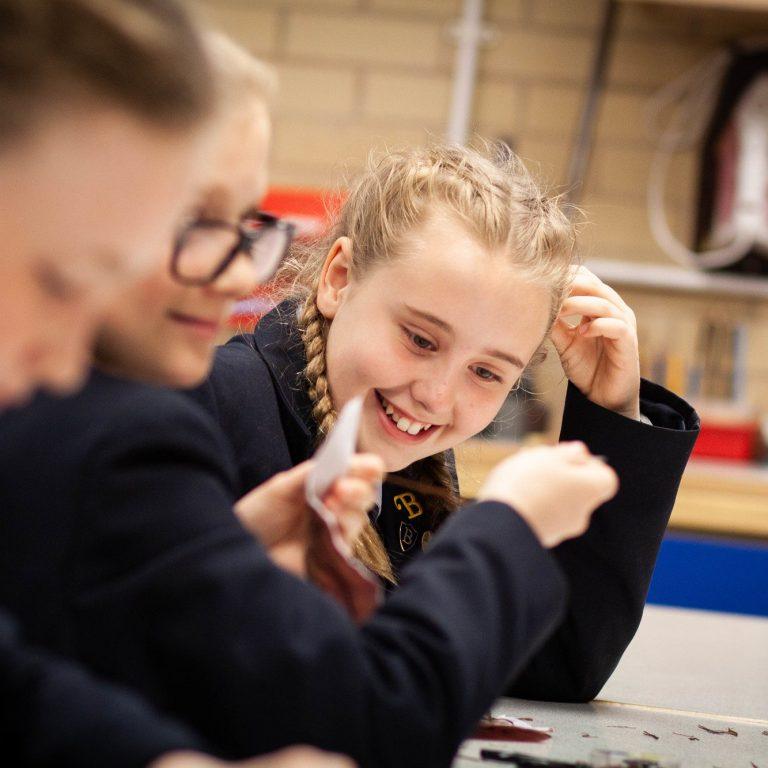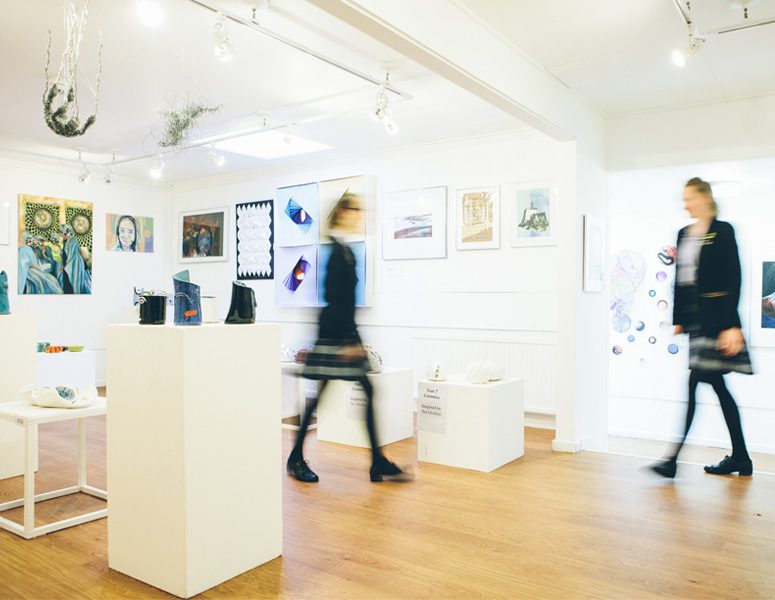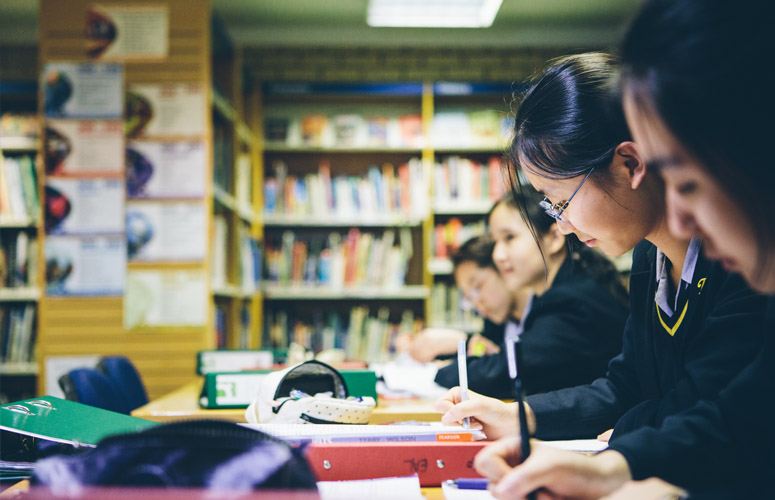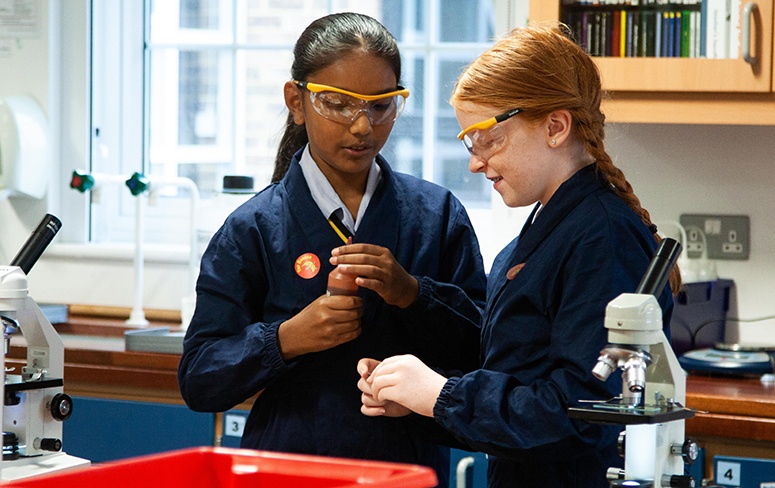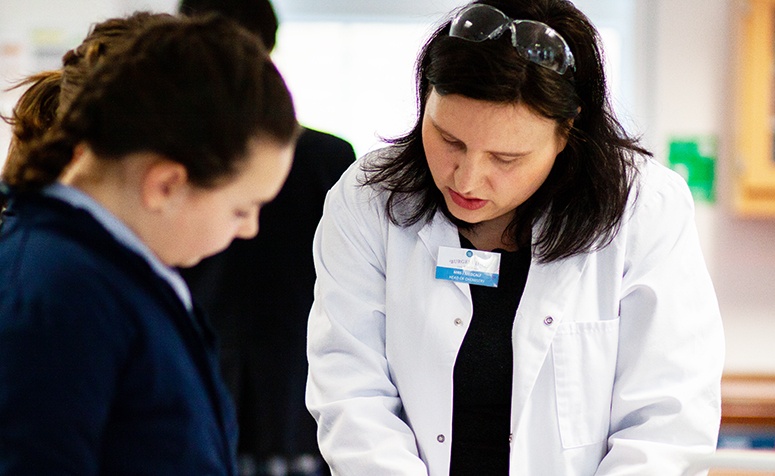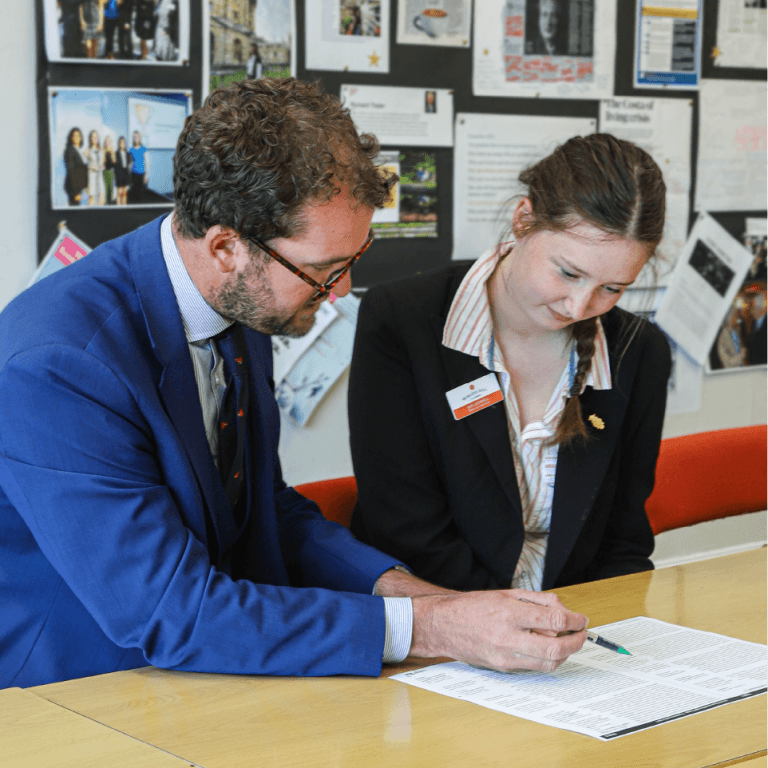At Burgess Hill Girls, our curriculum is designed to inspire a lifelong love of learning and prepare every student for life beyond school. We offer a broad, balanced, and personalised education that nurtures academic excellence, creativity, and independence, while fostering confidence, resilience, and a strong sense of values. Our aim is to empower girls to thrive in an ever-changing world and embrace every opportunity with courage and ambition.
-
- Our Curriculum Principles:
-
-
Broad and balanced: Enables pupils to develop a wide range of skills and understanding.
-
Personalised: Meets individual needs through choice, pace, challenge, and support.
-
Academic excellence and personal development: Promotes both intellectual achievement and character growth.
-
Encourages initiative and transferable skills: Prepares pupils for lifelong learning and adaptability.
-
Creativity and enrichment: Provides opportunities beyond the classroom.
-
Technology integration: Embraces digital tools to enhance learning.
-
Future readiness: Prepares pupils for higher education and careers.
-
-
1:2:1 School Managed Devices
The move to students all having leased 1:2:1 digital devices in the senior school aligns with our commitment to providing a modern, forward-thinking education.
The following link will take you to a page that addresses all your questions about our digital strategy, including its impact on teaching and learning, the importance of safeguarding, digital citizenship, costs, and device details: 1:2:1 School Managed Devices page.
Happy and Successful
“Pupils are well educated, achieving the school’s aim that they should be happy and successful. Pupils of all ages, including those in the Sixth Form, display excellent levels of knowledge, understanding and skill across all subjects and activities” (Independent Schools Inspectorate)
GCSE Options
For girls in Year 8, choosing their options for GCSE’s, please consult the below guide for 2026:
Academic Achievement
Burgess Hill Girls is brimming with evidence of enthusiastic learners and teachers. The quality of the girls’ educational experience is the core of everything and the school takes immense pride in their many achievements both in exams and beyond. This is reflected in consistently excellent GCSE results and A Level results.
The standard of academic achievement at Burgess Hill Girls is excellent and the ‘value added’ as measured by Durham University’s Centre of Evaluation and Monitoring (CEM) is something of which we are extremely proud. Using baseline data gathered as the pupils join the Senior School in Year 7, GCSE performance of each pupil is, on average, more than one and a half grades higher per subject than would be expected from pupils of similar ability. This regularly places Burgess Hill Girls in the top 1-2% of the schools using CEM statistics.
The data confirms what is in evidence daily: the girls thrive in this environment and exceed all expectations, giving them the confidence and foundation for a successful future.
“This is a school that is rightly proud of its pupils and what they achieve as individuals. Things like academic success naturally follow but the school does not chase statistics.” (Parent)
Lower School
Students in the Lower School, Years 7 and 8, follow a rich and varied curriculum that supports the development of core competencies, cultivates an understanding of the humanities, and builds confidence in several languages. We encourage a strong commitment to sport, healthy living and the creative and expressive arts.
Year 9
Year 9 is the foundation year of the Upper School, where more curriculum time is devoted to the options each pupil chooses to accompany their core GCSE subjects. The courses are designed to encourage pupils’ curiosity and increasing independence. Girls develop a deeper understanding of their subjects, explore topics of particular interest and develop the intellectual maturity necessary to perform as well as possible. Most importantly, they have fun with learning. The many co-curricular clubs and activities on offer enrich the taught curriculum and students’ experience of wider school life.
GCSE
In Years 10 and 11, pupils follow a programme of nine GCSEs from a wide choice of subjects. Academic enrichment and further qualifications are available to supplement the core programme, such as the Higher Project Qualification, Further Mathematics and Statistics.
Careers Events
Careers events aimed at raising the aspirations of girls are supported by successful female role models from a range of careers and links with local businesses. Careers education is a core element of each pupil’s overall programme.
Extension and Support
Every student is considered to have individual needs with respect to their learning experience within and beyond the classroom. The Head of Scholars oversees a thriving programme for academic scholars and more able students, with a range of tailored opportunities for participation and extension. The EAL department is highly skilled and runs a programme of lessons each week to support those whose first language is not English. Led by the SENCo, the experienced Learning Support team oversees a programme of interventions designed to support pupils in their learning and development. The school celebrates the significant and very successful contribution made by students with SEND to the academic and cultural life of the school and there is a positive image of SEND within the school community as a whole.
PSHE
In the Senior school we follow the Jigsaw PSHE scheme. Jigsaw PSHE is a comprehensive whole-school wellbeing program designed for students aged 3 to 16. It fosters a culture of inclusion and care within schools. The program features a progressive and spiral scheme of learning, ensuring that concepts are revisited and extended over the years, which helps in building new knowledge and skills. Additionally, Jigsaw PSHE incorporates mindfulness practices, such as breathing techniques and awareness exercises, to promote emotional resilience and personal growth among students.


